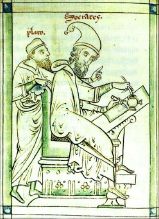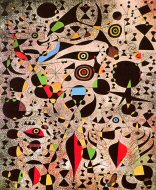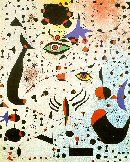 [en]
[en]
Scientists have come close to the possibility of erasing a one-month-old guinea pig’s memories. A protein called α-CaMKII is involved in the storing and regaining of memory.
In particular, researchers increased the levels of this protein at the moment when the guinea pigs remembered the pain consequent to a shock. This increase caused dissipation of the memory connected to the shock, and not just temporarily. The memory seems to be completely lost, as if the fact had never happened. Possible applications of this research are seen in overcoming memories of painful traumas.
Apart from the risk of engineering soldiers who can commit any brutality and forget it chemically, this approach to traumatic memories is a mechanical type without a holistic vision of human beings. The idea is still about having a war against something, as with medicine (“the war against cancer”, against microorganisms, etc.) instead of becoming aware of it.
Memories and traumas enter every cell of the body, and I have an impression that it will probably be possible to inhibit access to a certain memory, but it will not remove its energetic charge in the person. The extreme precision of awareness can act in a way that memories are not removed but are integrated into wider acceptance which becomes part of our experience and growth.
[/en][it]
Gli scienziati si sono avvicinati alla possibilità di cancellare nelle cavie i ricordi di un mese precedente. Una proteina di nome α-CaMKII è coinvolta nella memorizzazione e nel recupero delle memorie.
In particolare, i ricercatori hanno aumentato i livelli di tale proteina nel momento in cui le cavie ricordavano il dolore conseguente ad uno shock. Questo aumento ha portato alla dissipazione della memoria legata allo shock, non solo temporaneamente. La memoria sembra persa completamente, come se il fatto non fosse mai avvenuto. Le applicazioni possibili di questa ricerca vengono viste nel superamento dei traumi dolorosi.
A parte il rischio di trovarsi con dei soldati che possono compiere qualsiasi efferatezza e dimenticarla chimicamente, questo approccio verso i ricordi traumatici è di nuovo di tipo meccanico/organico senza una visione d’insieme dell’essere. L’idea è ancora quella di fare la guerra a qualcosa, come avviene per la medicina (“la guerra contro il cancro”, contro i microorganismi, ecc…) invece che prenderne consapevolezza.
Il ricordo ed i traumi entrano in tutte le cellule del corpo e la mia impressione è che si potrà forse anche inibire l’accesso ad un certo ricordo, ma questo non toglierà la sua carica energetica nella persona. L’estrema precisione della consapevolezza può far sì che il ricordo non venga rimosso ma che venga integrato in una accettazione più ampia che lo rende parte della nostra esperienza e crescita.
[/it]




